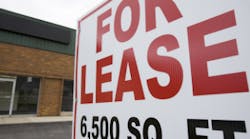Tips for negotiating the best dental office lease
You want to get the best deal for your money on the lease of your dental practice space. It's easy to get lulled into thinking you're getting a good deal, when you might not be. Take these tips to heart.
This article originally appeared in the Principles of Practice Management e-newsletter. Subscribe to the twice monthly ENL here.
Create competition
Whether you are renewing an existing lease or just starting out, negotiating leverage is in the hands of whomever cares the least. Most landlords are wealthy and do not care as much as small business owners do, so they win most commercial lease negotiations.
The way to level the playing field is simply not to care as much either. So, put yourself in a position of being happy with more than one location, and make sure all the landlords you speaking with are aware of this. Give them the truth, nothing but the truth, but not the whole truth. Give just enough for them to know you have other options and if they want to bid on your tenancy they will have to be competitive.
We found in a recent study that tenants who actively negotiated with at least two alternative space options decreased the rental rate by 13% more than the tenants who negotiated with just one landlord. As an added bonus, the clauses in the lease were also significantly improved.
Start early
For most commercial tenants, the goal should be to sign a new lease six months prior to the commencement date of that lease. This will account for finalization and signing of the lease, applying for building permits, the construction period, and a buffer period.
We examined 600 tenant renewals and found that on average, tenants initiated lease renewal discussions with their landlords on average 153 days prior to the lease expiry. This puts them inside the six-month mark, and for the landlords it is a signal that those tenants had clear intentions of renewing their leases and were not serious about investigating outside options.
Tell others what you are paying
Give and you shall receive. The purpose of telling your neighbors what you’re paying in rent is to receive the reciprocal information on what they are paying. When you do this with a few tenants you will get a better understanding of what the market should be. Think of it as forming a tenant union. Be sure to include the free rent details, tenant improvement allowances, and what money the landlord spent on your space.
Use this information at your discretion in your negotiations with the landlord. Do not be afraid to mention that you know what other tenants are paying. Just be sure to do it in a matter-of-fact manner, not aggressively.
Get a fixed renewal right, but don’t exercise it
Too many tenants have a right to renew, but this does not have an arbitration right so it’s useless. It is important to have a right, and for retail use it is usually better to have it at a fixed rate so the landlord cannot hold you hostage over it. But we advise that you don’t use it. The reason is that it will not allow you to improve the lease. For instance, what if you want the landlord to provide an allowance to renovate your space? What if the market is soft and many landlords are offering free rent?
Here’s a tip: Be sure to include another fixed right to renew in the offer. If you had exercised your option to renew, you would be using it up and it would be forever extinguished. Although you never want to use it, you always want to have it. It’s like a fire extinguisher.
Talk to every broker in town
There is blood in the water when your lease is coming due. Even if you have every intention of renewing your lease, talk with as many brokers as possible to ensure that you hear about any off-market opportunities, and to become educated on what other landlords are doing. It only takes one desperate landlord offering a ridiculous amount of free rent to change the complexion of your lease negotiation.
Get a right of first offer to purchase
You spend time developing a strong relationship with your landlord, and you have to start a new relationship every time the property is sold. The property being sold could be a bad thing. Worse yet, the new landlord may want to redevelop. Whatever your intentions are, ask for a right of first offer to purchase the property. The worst that can happen is the landlord says no.
Get the “make good provisions” out
In our experience, over 80% of commercial leases have make good provisions. This means a tenant must demolish the entire space when the lease terminates. What’s worse is this is often referred to by landlords as “the dentist clause,” which means that it is intended to cover atypical leasehold improvements. It is typically a $5 to $10 per square foot cost.
Get this clause out. All you have to do is ask. We’ve found that in over 80% of the cases, when the tenant asks for the clause to be removed, it gets removed.
Include a restrictive covenants clause
A restrictive covenant clause means you get to police who your neighbors are. You would certainly want to ensure that you’re the only dentist in the complex, but you should also include a list of other uses that would negatively impact your business.
No personal guarantees
There are no personal guarantees, and this is why we have corporations. If the landlord is sinking a lot of money into your leasehold improvements, then his or her risk should be covered, but it should be in the form of an increased deposit. The deposit should melt away over time, not be held forever. For example, a six-month security deposit could be converted into six months and applied to months one through three, 13 through 25, and the last month of the term.
Make sure the lease is assignable
Dental practices are like any other business. There are mergers, acquisitions, retirements, and life events that change everything. An assignment of the lease is a seamless handing over of the lease, provided some key requirements are met. The right assignment clause makes selling the practice that much easier.
No demolition clauses
When you select a location, be sure to evaluate whether the site is at its highest and best use. If so, then you are at a lower risk for it being redeveloped. In other words, you do not want to rent from a property that is prime for redevelopment. While it may be hard to completely eliminate a landlord’s right to demolish a property for redevelopment, be sure to include penalties that at the very least cover your unamortized cost of leasehold improvements.

